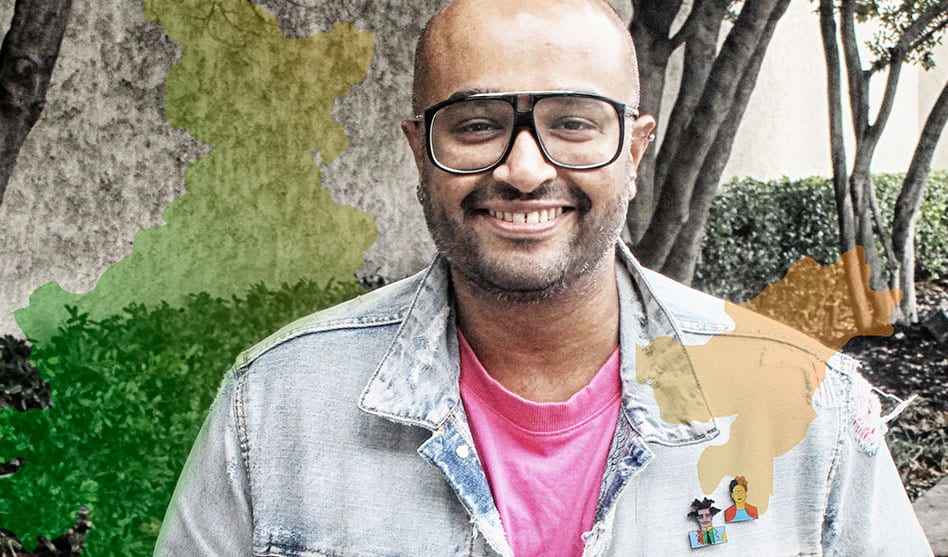Indian filmmaker defies government’s ban on homosexuality in his film Sisak
DAVID TAFFET | Senior Staff Writer
taffet@dallasvoice.com
Faraz Ansari was in Dallas for the South Asian Film Festival in February to speak about his film Sisak, which he described as the first silent-movie Indian gay love story ever made. He said he chose to make it a silent movie so that language would be no barrier for audiences in India’s multi-lingual society or around the world.
“No one wanted to produce [the film],” Ansari said. So he sold his car and moved in with his mom to produce it himself.
Ansari said the situation in India for gays and lesbians has gotten worse since the last election, when a current right-wing government took over.
In fact, even though homosexuality was de-criminalized in 2009, it was re-criminalized — with the possibility of jail time added — in 2013 by the current fundamentalist Hindi government.
“No one practices openly anymore,” he said. “I’m in extreme danger for making the film.”
Ansari has to tell the government when he’s leaving to country, and he said he was attacked at an airport by someone who called him an abomination.
He is shielded to some extent by the fact that the film has already won 34 international awards. Still, just making a love story is a political statement.
Ansari describes himself as a non-practicing Muslim from Mumbai who grew up speaking English. In fourth grade, he told his music teacher, “I like boys,” and she answered, “How amazing.” So he grew up comfortable with himself and who he is.
But these days in India, he said, homosexuality is seen as a western concept that takes away from the Indian ethos.
Ansari, 30, has staged about 150 school musicals working with kids 6-8 years old, and he has worked in Bollywood for the last nine years as an associate director and writer. He co-wrote the film Stanley’s Lunchbox, about child labor, that was India’s 2011 Academy Award entry.
He also made a 12-episode web series about a trans man who returns to India to visit his dying mother. “Trans are treated worse than gays in India,” he said.
Ansari said people, both gay and straight, have been deeply affected by his film.
He said the actors in his movie — “sisak” is an Urdu word that he translated as “a cry that is stuck inside your chest and unable to come out” — are straight. He said that appearing in the movie would have been too dangerous for gay actors, and the actors originally lined up as the leads withdrew just weeks before shooting began.
One of the actors who did appear in Sisak comes from a conservative Hindu family, and 35 of his family members came to see the film. “All of them had tears in their eyes,” Ansari said. “His dad said, ‘Thank you for making this film.’”
Ansari said he heard about a 7-year-old who watched the promo for Sisak on a loop for months and then came out to his parents. The boy’s sister told the filmmaker, “My brother’s sleeping peacefully, because you had the courage to make this film.”
Ansari said it’s important for him to continue making films that grow out of his own experience.
“The more deeply rooted, the more universal,” he said.
GALA screens Sisak on May 31, along with the award-winning film Real Boy, about a transgender teen searching for his own voice, at the Angelika Film Center, 7205 Bishop Road in Plano. Tickets are $12 in advance, available online at Galantx.org and $15 at the door.












